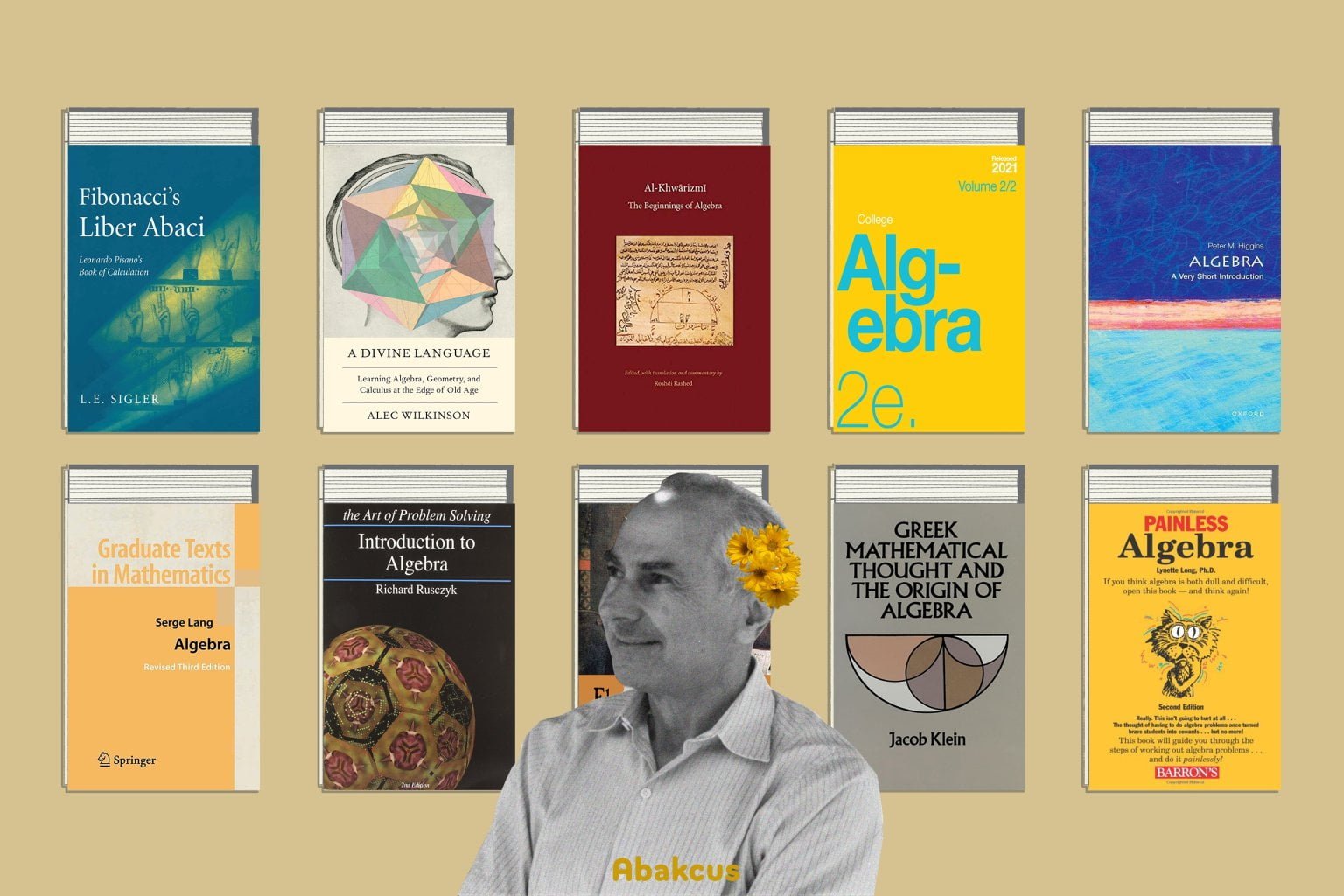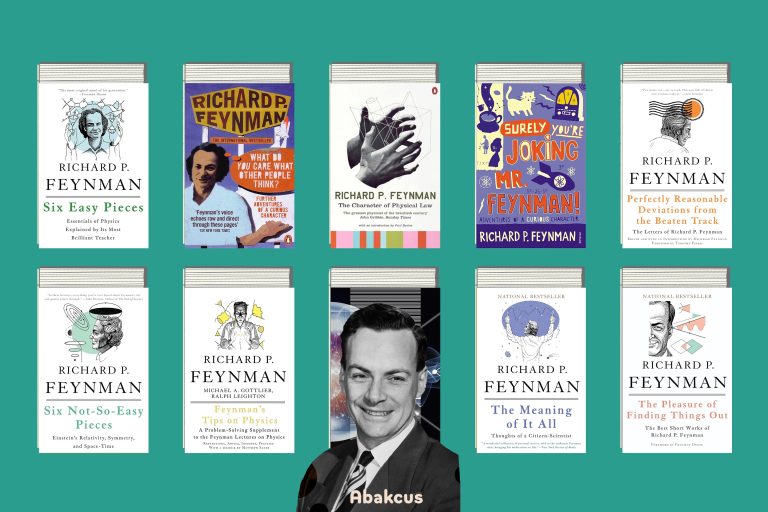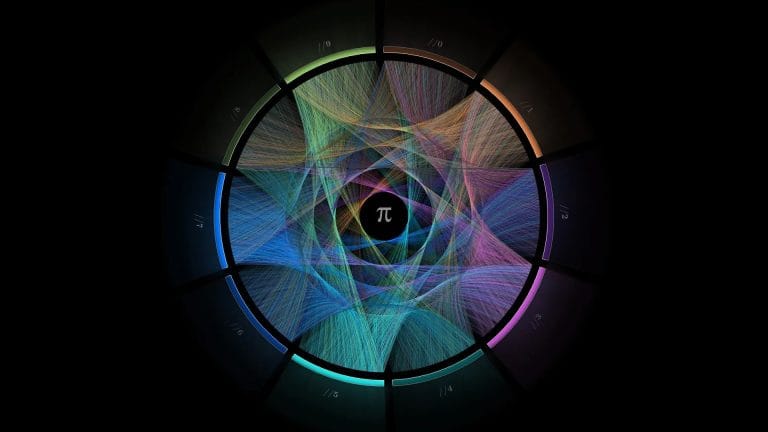After the great mathematician, Al-Khwarizmi discovered zero and built Algebra; this subject became an essential part of mathematics since then! Algebra has a wide range of applications in sciences, engineering, finance, and other fields.
To get the most out of this subject, it’s important to have access to the right resources. Fortunately, many excellent algebra books are available for independent study that can help you develop a better understanding of this topic.
In this beautiful list of useful algebra books, I will provide an overview of some of the best algebra books available and give tips on making the most of these resources so you can become more proficient in algebra.
Table of Contents
Learning Algebra by Reading Algebra Books
Have you ever wondered if learning Algebra is possible just by reading Algebra books? In my experience, the simple answer is yes! While learning Algebra from books by yourself may differ from traditional classroom instruction, it can be equally effective for those who enjoy self-directed learning.
The key is finding the right Algebra books that break down complex concepts into digestible portions and provide plenty of examples to assist with comprehension. With dedication, focus, and some great resources, like books about Algebra, you’ll become a pro at solving equations and understanding the beauty of Algebraic theory – all at your own pace. Yes, you don’t need a math tutor!
So, if you’re looking for a different way to learn Algebra, these books about Algebra may be the answer you’re looking for.
10 Top Algebra Books to Learn Algebra by Yourself
It is a fact that you can do anything with the right resources and tools! Even a challenging subject, mathematics can turn into a fascinating one too! With this guidance, you’ll quickly be well on your way to tackling Algebra and reaching new heights in your mathematical journey.
If you’re looking for some Algebra books for self-study, fear not – I’ve got you covered. Below, I have listed some math books and algebra textbooks so you use them to master algebra! But you will find not only Algebra textbooks among the list but also some crowd-pleasing math books and math history books to help you understand the wonderful world of Algebra.
Whether you wish to get through algebra courses in high school or college, the following Algebra books will help your struggles. So, let’s dive in and see what interesting reads we can uncover!
*** Those algebra books are mostly for high school students and college algebra students. So you will see some popular books like No-Nonsense Algebra: Mastering Essential Math Skills.
The 20 Best Math Books to Read Now: Unlocking the Wonders of MathematicsStatistics 101: The Best Statistics Books to Help You Master the SubjectThe Best 25 Puzzle Books for Adults: Unravel the Mysteries of the Mind
Algebra: A Very Short Introduction by Peter M. Higgins
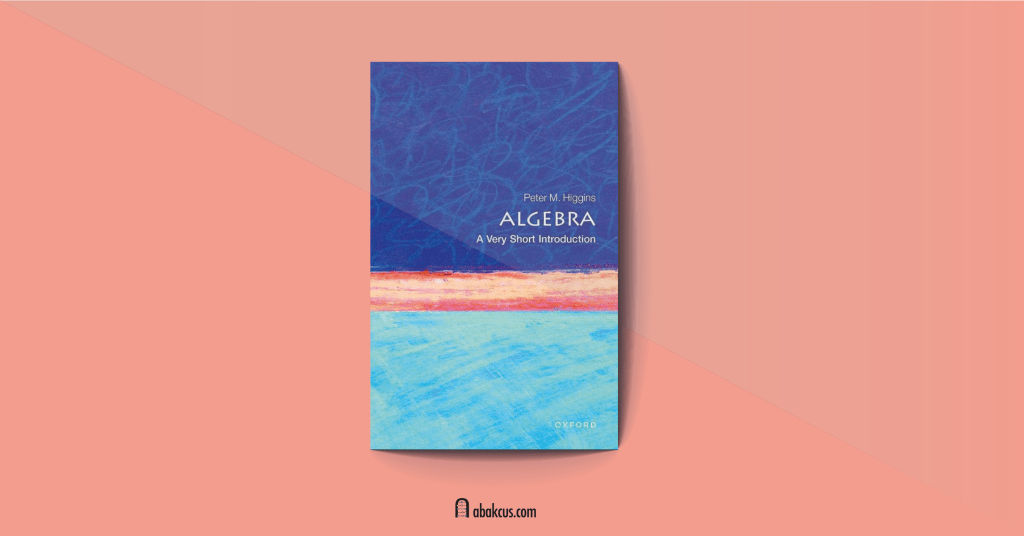
I always believe that before we start learning something, we should grasp the idea of that thing. So if you want to master algebra, first, you need to know what algebra is and why you need to learn algebra. And Peter Higgins’ Algebra: A Very Short Introduction is a great place to start your Algebra journey before diving into other Algebra books!
Algebra: A Very Short Introduction breaks down the basics of Algebra clearly and concisely, perfect for those looking to teach themselves. Plus, it’s less than 150 pages, making it a quick and easy read.
In his book, Higgins shows the logic and evolution of Algebra and basic math and does it in an easy-to-understand format. Basic concepts such as commutative and associative laws, solving algebraic equations, linear and fractional equations, algebraic expressions, quadratic equations, and quadratic functions are covered with examples and briefly discussed.
Overall, this book will not teach you essential concepts of algebra. But I still recommend Algebra: A Very Short Introduction for everyone before they start their learning process.
Al-Khwarizmi: The Beginnings of Algebra by Roshdi Rashed
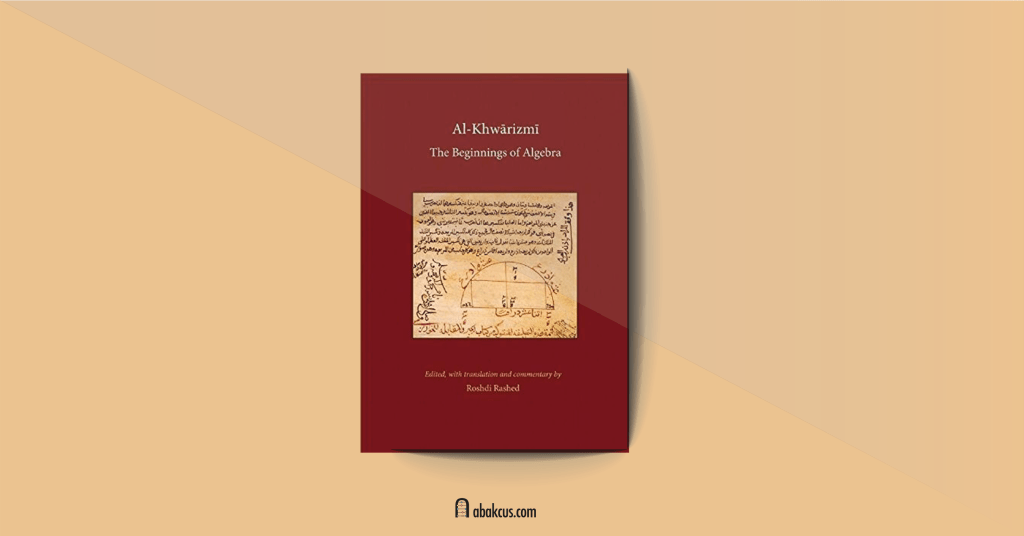
As I mentioned at the very beginning of this directory, the father of algebra is Muhammad ibn Musa al-Khwarizmi. After discovering and defining zero, he built the most important mathematical field, algebra!
It would be great to learn how a great mathematical mind works before you start learning Algebra because we can learn so many things from others, especially a great mathematician! If we want to enhance our critical thinking skills, we should see how other great minds think!
Roshdi Rashed’s book, Al-Khwarizmi: The Beginnings of Algebra, is not an algebra textbook. It is a math history book that delves into the life and works of the renowned mathematician, Al-Khwarizmi. It’s fascinating to learn how he developed the concept of algebraic equations and adapted numerals to create the first base ten systems we still use today.
Al-Khwarizmi: The Beginnings of Algebra makes the history of math come alive. I highly recommend it to anyone who wants to purchase some algebra books to gain a deeper appreciation of the subject.
Algebra by Serge Lang

Serge Lang spent almost his life writing mathematics books. Almost every math students know him for his mathematics textbooks, including Algebra books. The reason why he wrote so many algebra books was because he was a member of the math society, Bourbaki group!
Serge Lang’s Algebra book is probably one of the most useful college algebra books for college students. Since Lang himself was a great mathematician, his approach to teaching Algebra was his own unique way, which proved to be highly effective.
Serge Lang always had high expectations. He expects the students not just to understand him but to keep up with him with strong algebra skills! His questions, hints, and problems consistently provoke students into navigating through an algebraic world of their own making.
Whenever you try to understand Serge Lang’s proof, you will come out having learned so many algebraic concepts! Since he mostly emphasizes the main ideas, you will see useful problem-solving strategies. Your critical and logical thinking skills will skyrocket!
So, if you are going to get some college algebra books, first add Serge Lang’s Algebra to your chart! It is really a well written algebra textbook!
Art of Problem Solving Introduction to Algebra by Richard Rusczyk
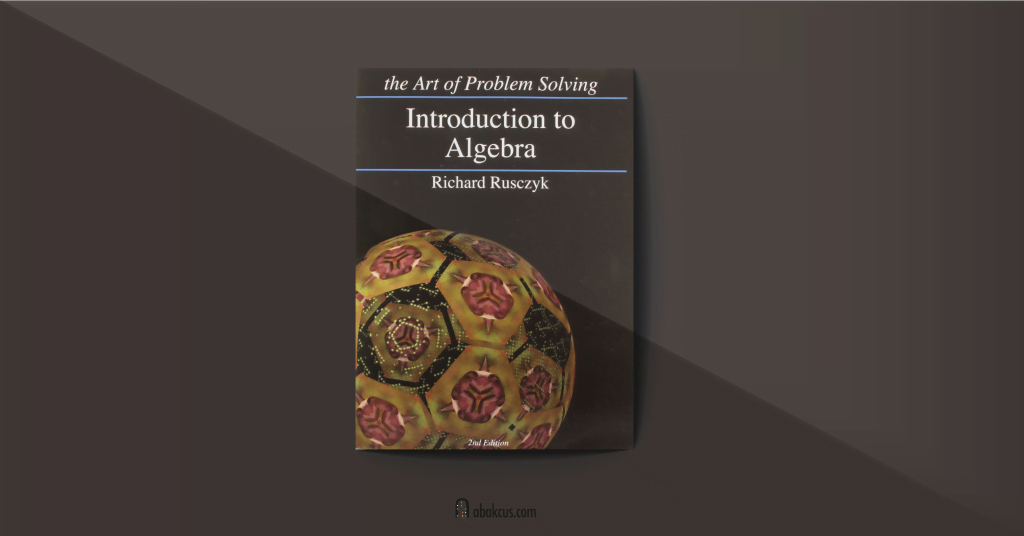
Here is a great book to master the art of problem-solving for your Algebra course! With his experience as a USA Mathematical Olympiad winner and founder of Art of Problem Solving, Rusczyk is uniquely qualified to guide you through the basics of algebra.
If you’re looking to boost your algebra skills over the summer or through self-study, Art of Problem Solving Introduction to Algebra by Richard Rusczyk may be what you need. This book packs almost the entire algebra curriculum into its pages, with plenty of practice problems to help you solidify your understanding.
One of the best things about this book is the solutions manual, which makes it easy to check your work and identify areas where you need more practice. And despite covering so much material, the book is surprisingly accessible, with methods that are easy to follow, even for high school students. Overall, if you’re serious about improving your algebra skills, this book is worth checking out.
A Divine Language: Learning Algebra, Geometry, and Calculus at the Edge of Old Age by Alec Wilkinson

When I first saw A Divine Language by Alec Wilkinson, I was pretty certain that I’d enjoy reading it. And my intuition was right! I really enjoyed this math book. But first, I need to warn you! This is not an algebra textbook or self-help book for people trying to learn math!
Wilkinson had a bad math experience in school, and he decided to teach himself algebra, geometry, and calculus in a concise manner! With this book, he wants us to show that we can learn algebra or calculus ourselves! That’s why this book is on this list of algebra books!
In “A Divine Language: Learning Algebra, Geometry, and Calculus at the Edge of Old Age,” Wilkinson offers encouragement for self-construction. He takes his readers on a strange path full of mathematical concepts and formulas. He also delves into some history of math and some philosophical issues implicit in the subject to show real-world examples.
A Divine Language offers an accessible and engaging perspective on these often-daunting topics, even for those approaching their golden years.
Greek Mathematical Thought and the Origin of Algebra by Jacob Klein
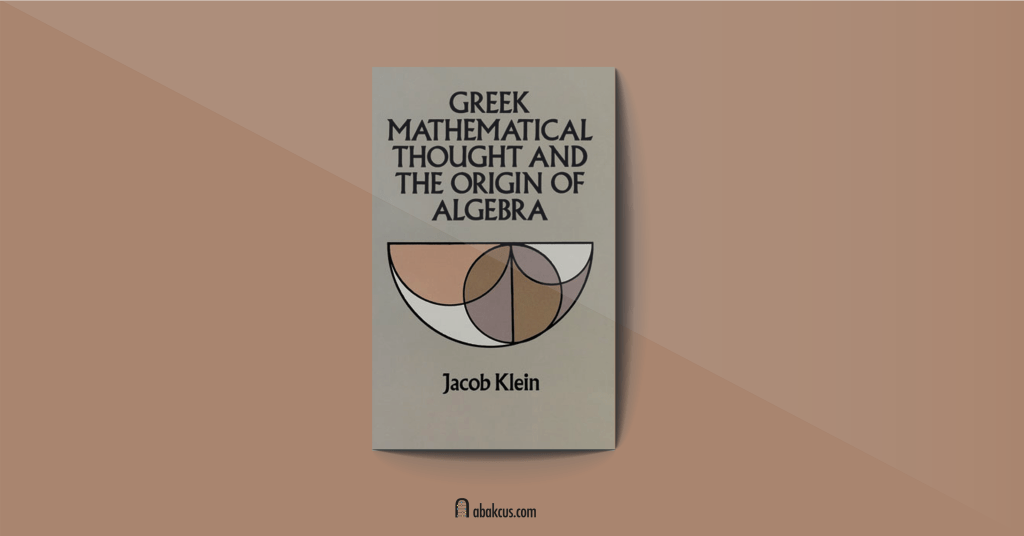
Jacob Klein’s Greek Mathematical Thought and the Origin of Algebra is one the best algebra books to analyze the historical development of algebra. I first saw this math book during my university years! While waiting for my professor, I saw this book between some algebra books! At first, I thought this was another algebra textbook, but I realized it wasn’t when I got it into my hand.
When the professor saw this book in my hand, he said, “If you want to improve your problem-solving skills, you can keep that book! I have more than ten thousand algebra books!”
This engaging book offers an in-depth exploration of the intellectual roots of modern Algebra and the way it emerged from Greek mathematical traditions. Through Klein’s clear and persuasive prose, you’ll discover how ancient Greek thinkers like Euclid, Diophantus, and Pythagoras laid the groundwork for the Algebraic ideas and algebra concepts we use today. It is a great way to see various learning styles and conceptual understanding.
So, if you want to fascinate by the origins of Algebra, this is one of the best algebra books! During your algebra courses, you can read and enjoy it!
Fibonacci’s Liber Abaci: A Translation into Modern English of Leonardo Pisano’s Book of Calculation by Laurence Sigler
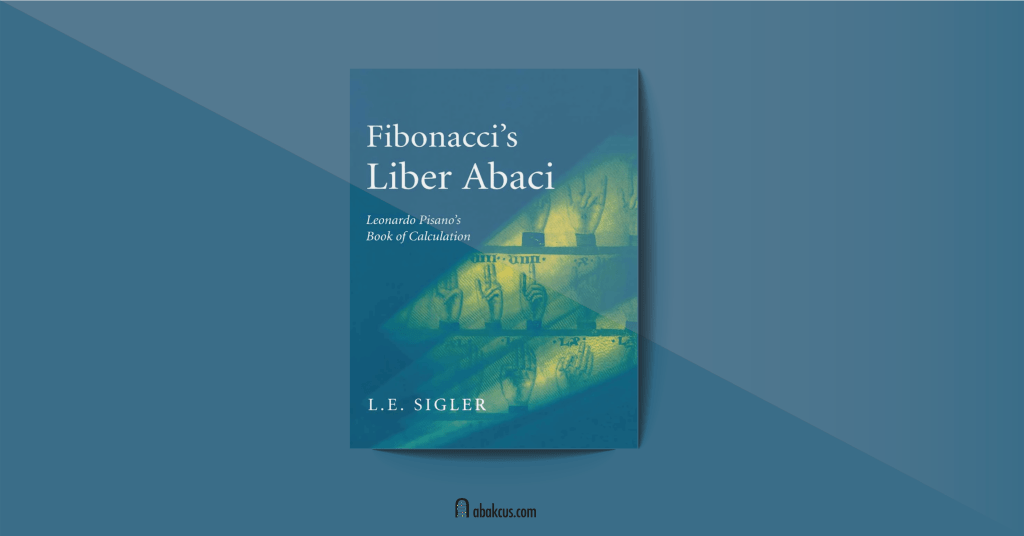
Liber Abaci is a historic 1202 Latin manuscript on arithmetic by Leonardo of Pisa. Thank Laurence Sigler, now we can have an amazing text on mathematics from the XIII century.
Fibonacci’s Liber Abaci is really a great book about the 13th-century mathematical concepts and methods used. This book is also considered to introduce the modern number system to Europe!
Fibonacci’s Liber Abaci is a historical text that brings to light the emergence of Algebra from the Arab world back in the 9th century. So much of what we know about math today can be traced back to the groundbreaking work of Al-Khwarizmi. But it was Fibonacci’s Liber Abaci that really brought Algebra to Europe with its accessible and nicely presented content. We can also assume this book is one of the first algebra books ever!
Sigler’s modern translation of Fibonacci’s Liber Abaci is a must-have for anyone seeking to deepen their understanding of math and its fascinating origins. So if you’re a math aficionado, don’t hesitate to pick up a copy of this timeless classic!
Elements of Algebra by Leonhard Euler
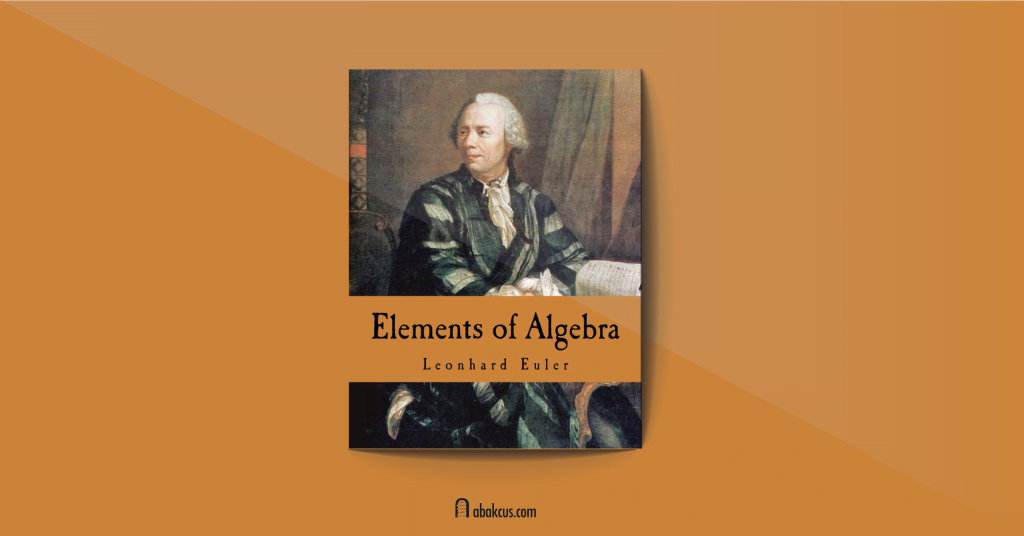
Leonhard Euler is the founder of modern algebra and is widely believed to be the best pure mathematician ever. And his book Elements of Algebra has a very impressive story behind it!
Since Euler went blind late in his life, he was getting some support from someone who didn’t have a good math education! However, Euler asked his helper to help him to write this book! What makes the story interesting is that Euler only put explanations in his book; since they were so well written, his helper learned a lot of math skills and mastered the book! And they published the book in 1765.
Elements of Algebra is one of the best algebra books written by one of the greatest mathematicians for the general population. And if you have special interests in algebra, there’s no better place to start than Leonard Euler’s Elements of Algebra. This book gives readers a gentle introduction to the subject and covers all the basics you need to know. From basic algebra concepts to methods for solving complex linear equations, Euler’s thorough and engaging approach makes this book a joy to read.
So don’t wait – pick up a copy of Elements of Algebra today and discover the beauty of one of history’s greatest mathematical minds.
Algebra: A Complete Introduction: The Easy Way to Learn Algebra by Hugh Neill
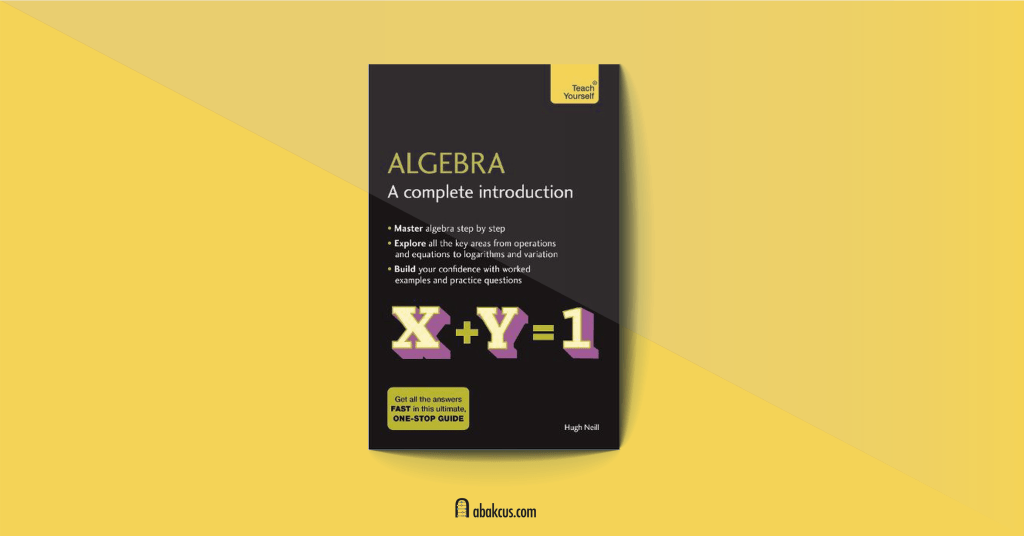
Many students struggle with Algebra in high school or college! I have a solution for them: Algebra: A Complete Introduction: The Easy Way to Learn Algebra by Hugh Neill. This book is like a game-changer for those trying to grasp the fundamentals of Algebra and improve necessary math skills.
Hugh Neill’s clear and concise explanations of algebraic concepts will have you feeling confident with Algebra in no time. With step-by-step instructions, this book helps students develop fundamental concepts that are easy to understand by breaking them down into manageable pieces.
Don’t just take my word for it – give it a try and see why Algebra: A Complete Introduction is one of the best resources to enhance your algebraic skills.
Painless Algebra by Lynette Long

Painless Algebra is a must-book to understand the fundamental concepts of Algebra. Lynette Long’s algebra book makes learning Algebra a breeze.
Painless Algebra is a fantastic resource that provides clear explanations, real-world applications, helpful, practical examples, and plenty of practice problems to help you become a master of Algebra in no time. This book stands out from other Algebra guides because it focuses on breaking down complex ideas into easy-to-understand concepts.
It is really a well-written algebra textbook which makes student learning pretty easy. Lynette Long’s friendly tone and approachable writing style make reading a joy. I believe every high school algebra student should have a copy! One more thing! Algebra Essentials Practice Workbook goes well with Painless Algebra.
Everything You Need to Ace Pre-Algebra and Algebra I in One Big Fat Notebook by Jason Wang
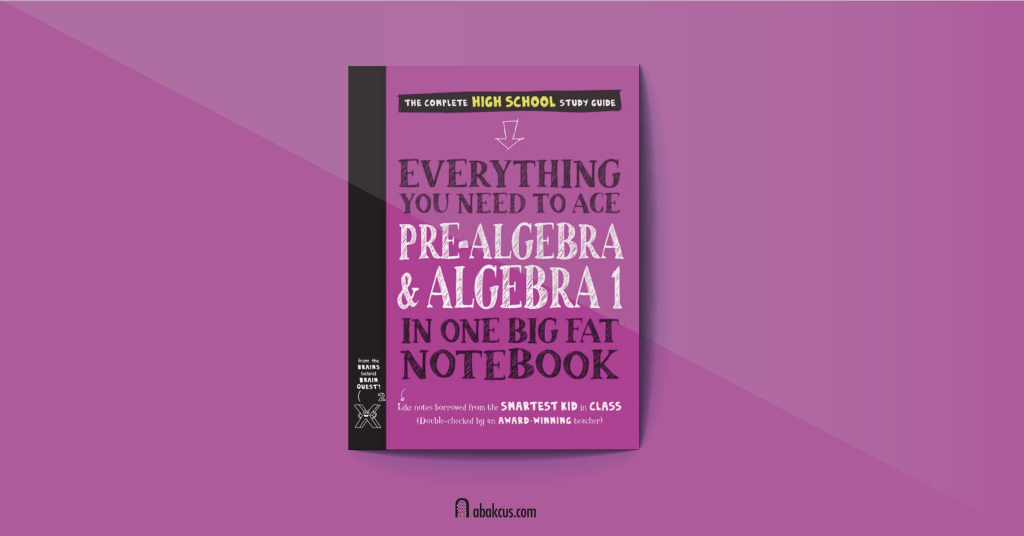
If you’re looking for a comprehensive and engaging way to learn pre-algebra and Algebra 1, then let me introduce you to Everything You Need to Ace Pre-Algebra and Algebra I in One Big Fat Notebook.
This book is jam-packed with all the information you need to start understanding and solving complex algebraic problems while taking you through step-by-step explanations and strategies that make learning algebra easy.
With its conversational tone and clear explanations, this book is perfect for middle-school to high-school students seeking to ace their Algebra 1 classes. So, whether you’re just starting with algebra or need a refresher, Everything You Need to Ace Pre-Algebra and Algebra I in One Big Fat Notebook is the book for you.
Tips on How to Get the Most Out of Your Algebra Book
When using algebra books for self-study, maximizing the material’s potential is critical so you can get the most out of your efforts. Here are a few tips on how to make the most out of your algebra books:
1. Take notes – Taking notes can be instrumental in helping you better understand and retain the material, and writing down key concepts as you read can provide an effective way to remember what you’ve learned.
2. Practice regularly – To really gain proficiency in algebra, it is important to practice regularly. Working through problems frequently is one of the best ways to test your understanding and develop a deeper understanding of the concepts.
3. Ask questions – Don’t be afraid to ask questions if you are unsure of something. There are plenty of online forums and discussion boards where people can get answers to their algebra-related queries.
4. Seek out help when needed – If you are stuck on a particular concept or problem, don’t be afraid to seek help. Whether from a tutor or online resources, getting assistance can be critical in helping you progress further with algebra.
What are the 5 types of algebra?
Algebra is one of the most useful and fascinating branches of mathematics. Above, you only see algebra books for basic stuff. However, algebra deals with manipulating symbols and their rules, allowing us to solve equations and analyze real-world problems. There are several types of algebra that you should know about, each with its own set of rules and techniques:
- Elementary algebra covers basic operations like addition, subtraction, multiplication, and division of numbers and variables.
- Linear algebra, which focuses on systems of linear equations and matrices. Abstract algebra deals with algebraic structures and their properties, like groups and rings. Number theory studies integers and their properties, such as prime numbers and divisibility.
- There’s a Boolean algebra, which deals with logical operations and truth values.
Each type of algebra is unique and fascinating; learning about them will give you a deeper understanding of mathematics and the world around us. I plan to make another list of algebra books to add more to our collection!
How should I study algebra?
If you want to conquer algebra or college algebra, the key is finding a study method that works for you. You may prefer working through practice problems and Algebra books alone, or you thrive in a group setting where you can bounce ideas off your classmates.
Whatever your preference, consistency, determination, and useful algebra books are essential. Set aside dedicated time daily to brush up on your problem-solving skills and stay on top of the material. Try breaking down complex mathematical concepts into smaller, more manageable pieces to help you better absorb the information.
And don’t be afraid to seek additional resources, such as algebra books or free courses, to supplement your learning. With the right mindset and approach, you can conquer algebra and open up countless new academic and professional opportunities.
What is the best way to study algebra?
If you’re reading this, chances are you’re either struggling with algebra or looking for ways to improve your study habits. Regardless of where you fall on that spectrum, let me say this: there is no one “right” way to study algebra.
That said, certain techniques and strategies work better than others. For one, starting with the basics is important, and building up from there. You can use Algebra books like Algebra Essentials Practice Workbook, Painless Algebra, and McGraw Hill Education Algebra.
Don’t jump into advanced mathematical concepts before mastering the simpler ones—secondly, practice, practice. Algebra is a subject that requires a lot of repetition and problem-solving to get a grasp on truly.
Finally, don’t be afraid to seek help. Whether it’s from tutors, teachers, or algebra books, there’s no shame in asking for assistance when needed. By following these tips, you’ll be well on your way to mastering algebra in no time.
Is college algebra like high school algebra?
If you’ve already taken high school algebra, you might wonder if college algebra is more of the same. Well, the answer is yes and no. On the one hand, college algebra does cover many of the same topics as high school algebra, such as functions, equations, and graphing.
However, college algebra goes deeper and covers more advanced concepts in algebra books. Additionally, the pace of college algebra is much faster, and high school students are expected to master these concepts in a shorter period.
While some might find this daunting, it’s also an opportunity to challenge yourself and take your algebra skills to the next level with some algebra books. So, while college algebra may share some similarities with high school algebra, it’s a different ballgame.
Is algebra hard for college students?
College Algebra can be a daunting subject for many college students. However, it doesn’t have to be. With the right approach, mentality, and guidance, anyone can overcome college algebra and excel in it. It’s all about breaking down the problems, understanding the concepts in steps, and practicing consistently.
Group studies, online resources, algebra books, and tutoring sessions can provide valuable support for learning college algebra. Rather than getting intimidated or discouraged, college students can develop a growth mindset where they see college algebra not as some insurmountable obstacle but as a puzzle they can solve with the right tools and efforts.
You can also watch Emmanuel Schanzer’s Ted talk below to find an answer for this question!
Is an Algebra textbook enough to learn Algebra?
When it comes to learning Algebra, the question often arises: Is Algebra textbook enough? While algebra books can certainly provide a comprehensive understanding of the subject, they may not be enough for everyone.
Different teaching methods work better for different learners, and some may find that textbooks alone aren’t sufficient. However, with endless online resources, algebra books, and even tutoring options, those struggling with textbooks can easily supplement their learning.
The key takeaway is that while an algebra textbook can form the core of one’s Algebra education, many other resources can enhance and deepen one’s understanding of the subject.

